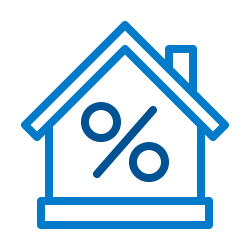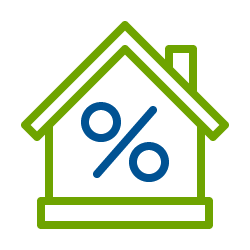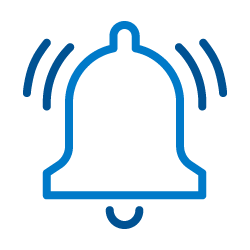Do You Want to Refinance Your Mortgage?

The rule of thumb is if you can save money with a 1-2% lower rate on your mortgage, refinancing could make sense to explore. Refinancing your mortgage means you replace your existing mortgage with a new one. Your new mortgage pays off your old one, and you’re then responsible for paying off your new mortgage. But when, if ever, is the right time to refinance?
Here are a few general scenarios where refinancing might make sense for you:
Mortgage Rates Have Decreased
Like the economy, mortgage rates change. When mortgage rates fluctuate, they also impact other factors that affect our rates on loans and other line of credit products. Refinancing could mean securing the lower rates that are available now before they possibly increase later.
If you refinance when mortgage rates are lower, then you can secure a lower interest rate than you have on your existing loan for a certain term. This means that refinancing could save you money. The general rule is if you can refinance your loan for a rate that is 1-2% lower than your current rate, then you should try.
However, every person’s situation is different, and you may want to consider other factors besides the rate. For example, how much you save depends on the amount of your mortgage. A 1% savings on a $100,000 mortgage is different than a $1 million mortgage. You might also consider how long you plan on staying in your home or how much your home is worth now. If your home is worth less now, you may find that refinancing isn’t beneficial.
Your Home has Increased in Value
Your home might have gone up in value since you closed on your mortgage, and there might be room to increase your savings per month and/or receive cash-out for refinancing. When you get a cash-out refinance, you close on a new mortgage that is larger than what you previously owed, and you receive the difference in cash. A cash-out refinance could be an alternative to a home equity loan.
For example, say you took out a $150,000 mortgage five years ago for a $200,000 house (you might have made a $50,000 down payment). After making regular mortgage payments, you now only owe $100,000 on the mortgage. But because the property value went up, your house is now worth $250,000. Because the house is more valuable, you may be able refinance for more than the balance of your mortgage, which is $100,000. If you can refinance for $120,000, then you would receive a cash-out of $20,000.
A cash-out refinance is considered an alternative to a home equity loan because you will still have to pay that money back. That’s why it’s important to be responsible with the spending. Make sure that the cash-out amount is used towards home repairs or other responsible decisions. Spending the cash-out money on bills or other things is not the best idea because it gets you used to spending money that you normally do not and will not have forever.
Your Credit has Improved
Your credit score has a lot to do with determining your interest rate on a mortgage. For the most part, the higher your credit is, the lower your credit score will be. If you know that your credit score has increased since you first closed on your mortgage, then you could explore the refinance route further.
Mortgage Rates are Going Up and You Currently have an Adjustable Rate Mortgage (ARM)
If you currently have an adjustable rate mortgage (ARM) and mortgage rates continue to increase, you may want to consider refinancing to secure the lowest rate you can before they increase again.
Refinancing from an ARM to a Fixed Rate would mean that you can lock down the lower interest rate now for the rest of the term of your loan—instead of it changing again with an ARM. If you are worried about future increases to your ARM, then refinancing to a fixed rate mortgage would secure your preferred interest rate at the given time.
How Much Would Your Monthly Payment be if You Refinanced Now?
1Bundrick, Hal M. “Mortgage Refinancing: How to Know When the Time Is Right.” NerdWallet. June 21, 2019. Accessed August 21, 2019. https://www.nerdwallet.com/blog/mortgages/mortgage-refinancing-time/.














